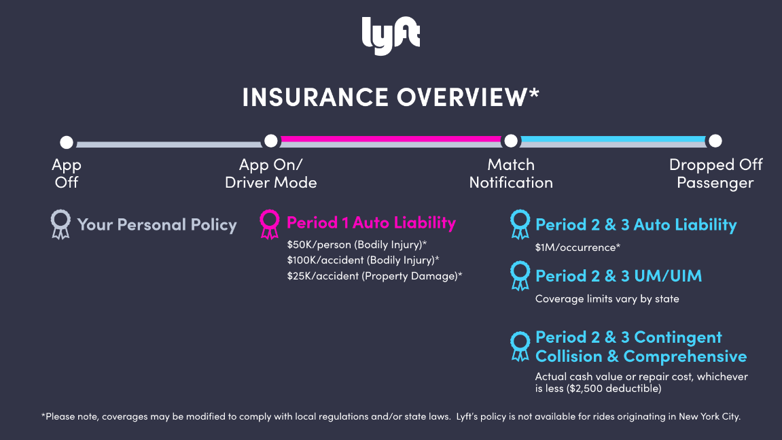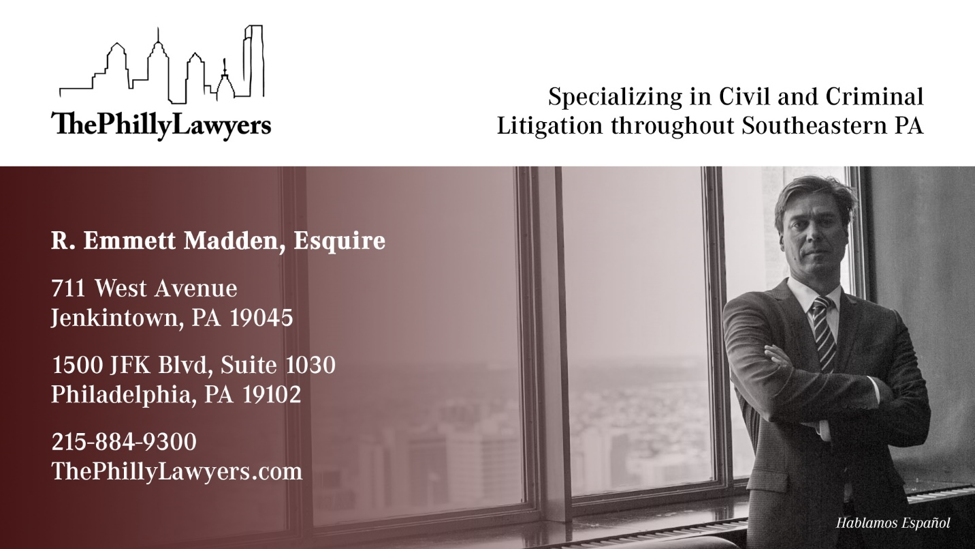We often receive inquiries from business owners who have been sued in Pennsylvania or are thinking about filing a lawsuit in Pennsylvania—asking whether it is legally permissible for an owner or officer of the business to represent the business in court without a lawyer. The answer to this question depends on (1) the type of business that you have, and (2) the court in which your business is being sued.
If your business is a sole proprietorship—that is, if your business is simply you, operating under your own name (for example, a house painting business where the checks are paid to “Mary Smith”), or if your business is you, operating under a legally registered business name (for example, a similar house painting business, but where the checks are paid to “Smith Painting,” the name under which Mary Smith legally does business)—then the true party before the court is you as an individual. Because there is no separate legal entity involved, you can legally represent yourself in court without a lawyer, even though you are being sued about a matter involving your business.
If your business is a general partnership, a limited partnership (“LP”), or a limited liability partnership (“LLP”), a general partner who is authorized to conduct the business of your partnership may legally represent the partnership without a lawyer, but the limited partners may not.
If your business is an entity with a separate legal existence, such as a corporation or a limited liability company (“LLC”) registered to do business in Pennsylvania, then the business must, as a matter of law, be represented in court by an attorney unless a specific exception applies. In a civil case, any filing made on behalf of a corporation or LLC by someone other than a lawyer is a legal nullity that can and must be disregarded by the court because the court lacks jurisdiction to consider any claims or defenses raised by a non-attorney.
There are three common exceptions to the rule that a business that is a separate legal entity must be represented in court by a lawyer.
First, certain minor courts in Pennsylvania that are designed to adjudicate small civil claims, such as the Magisterial District Courts and the Philadelphia Municipal Court, have rules that permit businesses to be represented by non‑lawyers. Those courts may have procedural rules that require the business to provide specific written authorization for the non-lawyer representative to appear for the business in court.
Second, a non-attorney may legally represent a business in certain administrative proceedings, such as a hearing before a referee of Pennsylvania’s unemployment compensation board.
Third, an exception exists for a rare and complex type of case known as a stockholder derivative action.
Of course, the question of whether it is legally possible for your business to be represented by a non‑lawyer is very separate and different from the question of whether it is wise, or a good idea, to allow your business to be represented in court without a lawyer. We strongly recommend that any business that is involved in a court proceeding, or any business that is thinking about starting a court proceeding, consult with a well-qualified attorney who is experienced in litigating business disputes. What you don’t know about court procedures and the intricacies of the law can, and often will, hurt your business.
Covid-19 has swept the world and southeastern Pennsylvania in the most profound way. ThePhillyLawyers is taking all necessary precautions and continuing to provide our clients with the best professional, legal counsel. Adhering to all state and government mandates, our offices are temporarily closed to the public, but we are still working diligently for our clients.
Our staff is working remotely from our homes and our clients can easily communicate their concerns and questions with us using email, telephone, fax, cell phone, text, or WhatsApp.
ThePhillyLawyers has always maintained a good, professional relationship with the local Courts, District Attorneys, and Judges. We are still electronically filing time sensitive motions when necessary and rescheduling court dates. All Courts are currently closed, indefinitely.
We are utilizing video depositions to maintain the flow of civil litigation. We are in contact with the Courts and are rescheduling hearings for a future date.
ThePhillyLawyers recognizes the seriousness of the Covid-19 health crisis. We are dedicated to continuing to give our clients the best legal care under the current circumstances.
Please call us with any questions or concerns.

Have you been injured while using an Uber or Lyft? After an accident in an Uber or Lyft, you may have several questions: Who pays for my injuries and suffering? Are the driver and their insurance responsible? Or are the companies—Uber or Lyft? What are my legal options?
What are the laws regarding Uber and Lyft—specifically when it involves a car accident and injuries?
Uber and Lyft were relatively unheard of a few years ago. Now, they are a part of our daily lives. Rideshares are now one of the most popular ways to travel. And as Uber and Lyft rides increase, so do the number of accidents and injuries. But what happens if you are injured while ridesharing?
Uber and Lyft drivers are not employees of these companies but rather are independent contractors. Thus, it is hard to sue Uber or Lyft directly because companies are usually only liable for the negligent actions of their employees.
The good news, however, is that not only do these ridesharing companies require their drivers to have insurance, but Uber and Lyft also protect their drivers and passengers with substantial insurance policies.
Here is a summary of Lyft’s policy (and Uber is similar)

For Uber and Lyft there are different layers of coverage for drivers—depending on whether they have the app running and have a passenger. The important point is that if you are injured as a passenger, Uber and Lyft cover up to $1 million for personal injuries and property damage per accident. In addition, if your driver wasn’t responsible and another uninsured driver caused the accident, you are also covered through the $1 million UM/IUM (uninsured/underinsured motorist) coverage.
This insurance also covers pedestrians; however, it must first be determined whether the driver had the app running at the time of the accident.
If you have been injured while a passenger in an Uber or Lyft, you may be eligible for substantial compensation—for medical bills, loss of employment, lost wages, loss of future income, physical therapy, property damage, pain and suffering, etc.
Here at ThePhillyLawyers we have experienced attorneys who are familiar with the structure of these insurance policies. We will free you from the complicated process of keeping medical records, organizing files, filing claims, dealing with high-powered insurance and rideshare companies, and keeping track of everything else that is involved in your case. We promise to minimize your stress and maximize your compensation. Call us today.
In addition, ThePhillylawyers is also experienced with handling sexual assault cases, including those connected with rideshare companies.
Have you been sexually assaulted by your Uber or Lyft driver? Did you report the assault to Uber or Lyft? Did the company completely ignore you or do nothing to help?
Unfortunately, Uber and Lyft have not taken the necessary steps to protect their customers. Uber released its first safety report in December 2019, showing an alarming rate of 6,000 sexual assaults within the past 2 years. And that number only reflects cases that were reported.
If you or someone you know has been sexually assaulted by an Uber or Lyft driver, it’s time to take action.
Please contact our office and speak with one of our attorneys who specialize in helping victims of sexual assault and holding companies like Uber and Lyft accountable.
By the middle of February, ThePhillyLawyers had passed 1.5 million dollars in personal injury settlements for our clients in 2020.
Call us today to be our next million-dollar settlement!

TOP SETTLEMENTS
A Mexican national living in Pennsylvania, without proper documentation, had a night out on the town with friends. After one too many drinks, he walked home to sleep off his festivities. Unfortunately, he mistakenly went to the wrong door, wrong block, and wrong house. Once there, he was dismayed to find that his key would not work. Cold and ready to be home, he continued fiddling with the door and key. Not to be discouraged, he then tried to open a window. After several attempts, the homeowner woke up—an older lady who had become alarmed by seeing this young determined man at her door and window. After a moment, he sat down and fell asleep on the front stoop.
When police arrived, the woman answered the door, identified the culprit, and he was easily arrested. Despite his efforts to explain his honest mistake in broken English, he was charged with felony first-degree burglary.
After numerous hearings and presentation of a collection of mitigating evidence showing his good character, strong work history, and demonstrating the similarity in the locations as well as the fact that he neither ran, used any tools, or showed other indications of criminal intent, the Commonwealth agreed to withdraw all charges and permit him to enter Accelerated Rehabilitative Disposition, otherwise known as ARD.
This result avoided a criminal conviction and avoided the real and serious risk of deportation. Now he is doing community service, paying a small fine, and celebrating the birth of his beautiful baby daughter. Everyone is happy—including his wife, child, and employer—and a just result was achieved for all.
For creative, aggressive legal representation, look no further than ThePhillyLawyers!
The PCRA is a statute that provides some criminal defendants, who have been convicted of a crime and who are still serving a sentence of probation or incarceration, with the ability to challenge their convictions even after an unsuccessful direct appeal to the Pennsylvania Supreme Court.
PCRA’s are often filed to challenge ineffective assistance of counsel at trial or when an attorney is assisting a client’s decision to plead guilty. Other reasons to file a PCRA are retroactive changes in constitutional law and the discovery of new evidence that would change the outcome at trial or change a decision to enter a plea. The Post-Conviction Relief Act is complicated and there are strict deadlines for filing a PCRA. If you are considering filing a PCRA, it is very important to speak with a knowledgeable attorney.
The Post-Conviction Relief Act underwent changes in 2018. A bill was signed into law that changed the Post-Conviction Relief Act in three important ways:
First, the law extends the deadline for filing a Petition based on newly discovered evidence. Previously, petitioners only had sixty days to file a petition from the day they discovered any new evidence. The change in time-limit ensures that defendants who locate result-changing evidence after their trial, will have a reasonable time-frame to file their petition based on newly discovered evidence.
Second, these changes provide that defendants that file petitions based on new DNA testing do not have to be on probation or in prison at the time that the petition is filed and decided. Previously, the PCRA required that a petitioner be serving a sentence of probation or incarceration when filing the petition and when the petition was ruled on by the court.
Third, the changes in the law allow for DNA testing in some cases even where the defendant pleaded guilty at the time of the original criminal trial. Prior to these changes, a defendant who pleaded guilty could not seek DNA testing even when DNA testing would exonerate them. The new changes in the law eliminate this unfair bar in order to overturn wrongful convictions.
Pennsylvania’s Supreme Court has decided the matter of Commonwealth v. Perfetto. This establishes that Philadelphia prosecutors may not prosecute more serious misdemeanor or felony charges against a defendant who has already been tried in traffic court for offenses arising from the same incident.
For example: If police conducted a traffic stop and charged you with a DUI and you received traffic tickets and resolve your traffic tickets, you cannot be prosecuted for the DUI. In Philadelphia, this happens often because traffic court cases usually go to trial more quickly than criminal trials. The Supreme Court ruled that, as a matter of fundamental fairness, prosecutors should not be allowed to charge a defendant in multiple different courts for the same conduct. This decision could result in many cases being dismissed.
If you have a matter where you received a traffic violation in addition to misdemeanor or felony charges make sure you contact ThePhillyLawyers for a consultation and have the support of a team of attorneys that know the correct motions to file to win your case.
In recognition of Emmett Madden’s expertise and success in personal injury and criminal defense cases, he is featured as a Super Lawyer in the most recent issue of Philadelphia Magazine. Every summer, the magazine highlights its annual list of the top lawyers in Pennsylvania and Delaware. Emmett has once again received the honor of being named a Philadelphia Super Lawyer. After a rigorous selection process, only the top 5% are selected as Super Lawyers.
The magazine writes as follows:
“R. Emmett Madden fights for social justice by defending those accused of crimes and representing injured individuals. For criminal defendants, he has won not guilty verdicts throughout the Delaware Valley. For injured clients, he has obtained maximum recoveries for victims of vehicle accidents, nursing home negligence, insurance abuse and building collapses, including Philadelphia’s recent record settlement of $227 million in the Salvation Army Building Collapse. Emmett is also proud of his work on behalf of the poor and disenfranchised as a volunteer at Ayuda Christian Legal Clinic in North Philadelphia and serves as a part-time Public Defender in Montgomery County.”
From the Super Lawyers website:
“Super Lawyers is a rating service of outstanding lawyers from more than 70 practice areas who have attained a high-degree of peer recognition and professional achievement. This selection process includes independent research, peer nominations and peer evaluations.”
To view Emmett’s profile on Super Lawyers, please visit here.
ThePhillyLawyers is honored to receive this award once again and we look forward to continuing serving those most in need.